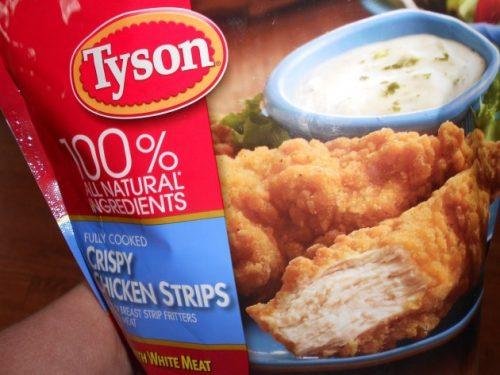Tyson Foods—a colossal force in the American meatpacking industry—recently agreed to pay $50 million to end claims it colluded to inflate pork prices. This figure, substantial by any metric, represents the lion’s share of a joint $64 million settlement reached alongside Clemens Food Group ($10 million) and Triumph Foods ($4 million). These companies together faced allegations that for several years they manipulated the wholesale price of pork, with consumers and commercial buyers footing the ultimate bill.
The litigation dates back to 2018. Plaintiffs alleged not just rising prices—they asserted a concerted effort among leading pork producers to artificially restrict supply and undermine competition. Key class members included well-known distributors such as Maplevale Farms and Ferraro Foods, indicative of deep impact across supply chains. Some grocery cooperatives weren’t untouched either.
It bears mention: all settling companies have steadfastly denied wrongdoing or liability throughout these proceedings. According to Tyson’s official stance (and one mirrored by Clemens and Triumph), they opted for settlement solely due to uncertainties—the ballooning expense—which multi-year antitrust disputes tend inevitably toward rather than any admission of improper conduct or anticompetitive collaboration.
Antitrust law rarely makes headlines unless the figures rise into eight-digit territory or unfamiliar language like “class action scope” appears in court dockets; such is now the case here. The class in this lawsuit was carefully defined: businesses which bought pork products directly from Tyson, Clemens, or Triumph between 2014–2018 were eligible for relief due under terms agreed upon by legal representatives on both sides.
Judge John R. Tunheim—who presided over this multidistrict suit at Minnesota’s federal district court—recently accepted preliminary filings seeking approval for these settlements yet cautioned at earlier stages that defendants would face ongoing scrutiny while related lawsuits involving Agri Stats remained underway, even though most other large U.S.-based processors had already negotiated their own separate agreements in previous months.
Prior settlements with Smithfield Foods, JBS USA, Seaboard Foods—even Hormel—have escalated cumulative recovery northward past $180 million so far; this underscores how widely plaintiffs’ grievances reverberate throughout protein manufacturing sectors nationwide rather than simply resting on a single company’s doorstep.
It seems almost paradoxical then that each defendant simultaneously maintains innocence yet prefers fiscal closure over courtroom uncertainty—a duality characteristic of modern corporate legal strategy (despite some external observers misunderstanding its intent).
Price-fixing schemes are challenging to unravel because prosecutors must prove coordination—not merely parallel business behavior—which remains tough when documentation is scarce but economic signals suggest something amiss beneath normal market fluctuations; thus cases sometimes settle before trial so no actual finding gets entered concerning guilt or exoneration.
For food service providers—and indeed institutional buyers like schools or hospitals who might’ve sourced bacon slabs via intermediary wholesalers—the settlements do provide some measure of profit recompense albeit modest per capita once distributed given vast numbers involved (a matter often overlooked until payout checks arrive months down the line).
Perhaps curiously enough—it should be noted—that although direct purchasers have explicit eligibility under current agreement language there has been confusion amongst indirect buyers regarding whether derivative claims might proceed after this round closes out legally speaking (an ambiguity best left untangled by future judicial opinion).
As an aside—and certainly understated compared against principal headlines—it cannot escape scrutiny that independent agricultural producers monitoring commodity prices during covered years did complain more frequently about volatility compared with prior benchmarks although economists diverge about causality versus correlation when examining those patterns retroactively through today’s forensic lens.
Long term effects? That remains uncertain since civil actions against data analytics firm Agri Stats continue apace despite recent payouts from more prominent names in meat processing; regulatory attention does not dissipate quickly when systemic price fixing seems even remotely plausible within critical infrastructure sectors like food production which fuel daily commerce statewide if not globally.
One anomaly persists: Tyson’s insistence on denying liability while voluntarily contributing such a significant sum may seem inconsistent absent wider context—especially considering parallel suits settled concurrently involving practically identical evidence standards applied—but perhaps it simply reflects divergent corporate risk appetites instead than evidentiary calculus alone.
At present posture lawyers representing both plaintiffs and major defendants refrain from public comment pending final court approval except reiterating rote statements regarding commitment “to consumer fairness” or “supply chain integrity”—language familiar if slightly ambiguous whenever regulatory events intrude into staple industries known more for brisk throughput than legal spectacle.
In conclusion? Major meat packaging houses will duly disburse millions without acknowledgment of guilt—as courts weigh consent decrees’ precedents—for infractions still hotly contested behind closed doors even as compensation finds its way downstream toward myriad claimants cognizant only belatedly that conglomerates’ strategic decisions can ripple perceptibly through seemingly mundane transactions at every stop along America’s sprawling protein economy panorama.

